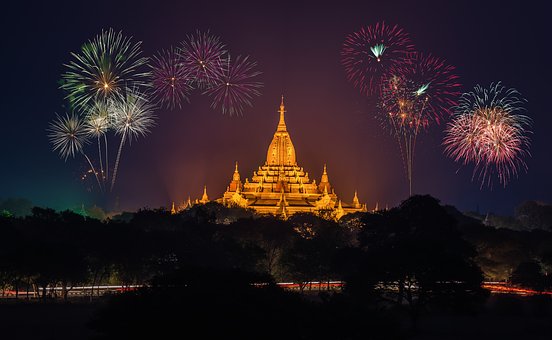On the ground, a group of women from southwestern Morocco pulp fruit to make the famous argan oil, which is highly prized throughout the world, an ancestral know-how which, shunned by the younger generations, could disappear.
In the “Marjana” cooperative, about fifteen kilometers from the port city of Essaouira, these craftswomen work under the eyes of tourists. With slow gestures, these women, mostly in their sixties, crush the hard kernels with pebbles they have chosen and sometimes a hammer, to extract the almonds before sorting, roasting, grinding and then pressing.
“It’s hard work that requires experience and a lot of patience”explains to AFP Samira Chari, 42, the youngest of this cooperative which produces up to 1,000 liters of oil annually.
“This profession is currently shunned by the new generation”, deplores Amel El Hantatti, founder of the cooperative, created in 2005 and employing 80 women, in manufacturing and marketing. The manager admits having “fear that this artisanal work will one day disappear”.
Yet this activity is, along with tourism, the main source of income for the 78,000 inhabitants of Essaouira, famous for its expanses of argan trees, one of the few plants capable of withstanding the semi-arid climate of the region.
Many cooperatives, located over twenty kilometers, produce the precious oil there, labeled since 2010 “protected geographical indication” (IGP). This know-how was also included in the intangible cultural heritage of humanity in 2014. However, it does not attract young people.
“Special and unique”
Newcomers to Marjana generally choose the sale of argan oil, widely used in cooking in Morocco, and its cosmetic derivatives.
“I tried to work for a few days with the craftswomen but I couldn’t continue; it’s a difficult and very tiring process”, says Assia Chaker, 25, a sales consultant for three years. After years of unemployment, this graduate in Islamic sciences turned “without enthusiasm” to this sector.
She “prefers to be in contact with people and practice other languages, since our store welcomes tourists every day, rather than staying all day crushing argan nuts”. And “anyway, one day there will only be machines to do this job”she believes.
His boss, Amal El Hantatti, objects: “The oil made by the machines will never have the particular taste of that produced by these craftswomen. It contains their positive vibes, their laughter, their stories shared during the work, a spirituality that make it special and unique”.
“Other ambitions”
“I have known in my life only argan oil. For me, it is as essential as oxygen or water”, confirms Samira, roasting almonds in a large earthen pan. This craftswoman, who works 10 hours a day, has never been to school. Divorced for 10 years, she supports her children on her own thanks to her job.
She has mastered the art of making argan oil from an early age, a know-how handed down from generation to generation. But his children will not take over: “They have other ambitions”emphasizes Samira, who understands their desire to complete their studies.
Yet this “liquid gold” with benefits – moisturizing and anti-aging – proven by numerous studies, is in growing demand.
According to official statistics, the kingdom produced more than 5,600 tons of argan oil in 2020, of which 2,350 were exported. The sector’s turnover tripled between 2012 and 2019, reaching around 108 million euros, according to the Ministry of Agriculture.
Faced with the risks associated with climate change, the authorities have supported the sector over the past 10 years, in particular by building 13 rainwater collection reservoirs. The Agadir-Essaouira zone, which covers more than 830,000 hectares on which 686 cooperatives are established, obtained in 1998 the status of “biosphere reserve” of Unesco.
With the objective of transforming this traditional culture into a sector “modern, profitable and with high added value”Morocco has included argan in its agricultural strategy for 2030. It plans to double production while promoting “the emergence of a new generation of the peasant middle class”.
In Morocco, the disaffection of young people threatens artisanal argan oil

